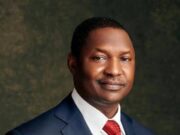The Federal Government’s proposal to transition from the current 9-3-4 education system to a new 12-4 model has sparked mixed reactions among education experts, with some describing the move as premature and others viewing it as a step in the right direction.
The Minister of Education, Dr. Tunji Alausa, announced the proposed reform at the 2025 Extraordinary National Council of Education meeting in Abuja.
He argued that a 12-year basic education structure would provide a more continuous and comprehensive learning experience, ultimately improving educational outcomes and boosting Nigeria’s economic development.
Under the existing 9-3-4 system, students complete nine years of basic education, three years of senior secondary schooling, and four years of tertiary education. The proposed 12-4 model would extend basic education to 12 years, before proceeding to four years of higher learning.
However, reactions from education stakeholders reveal deep divisions on the proposal’s feasibility.
A retired principal, Mrs. Olufowowe, expressed skepticism, stating that the country is not ready for such a drastic shift.
She highlighted challenges such as poor teacher remuneration and inadequate school funding, which she believes would hinder the successful implementation of the 12-year structure.
“The government is yet to adequately fund schools under the current system. Until more resources are allocated to education, this policy may not succeed,” she said.
Similarly, a former director at the State Universal Basic Education Board (SUBEB), Mr. Musbau Adewole, acknowledged that while change is necessary, the focus should be on integrating vocational and technology-based skills into the curriculum rather than restructuring the system.
“Our schools should prioritize tech skills and vocational training to prepare students for the modern economy. The world is evolving, and Nigeria’s education system must adapt to these changes rather than just modifying the structure,” he stated.
Another expert, who preferred to remain anonymous, criticized the proposal, calling it a misplaced priority at a time when Nigerians are struggling with basic needs.
“The government should focus on improving existing facilities, paying teachers and lecturers promptly, and ensuring students can access quality education. How many of their children are studying in Nigerian schools? Changing the system now is unnecessary,” he argued.
He also pointed out the economic difficulties many families face, adding, “People are struggling to afford two meals a day, and yet we are discussing a policy that will require more resources. This is just like the unnecessary change of the national anthem—it doesn’t solve pressing issues.”
As debates continue over the feasibility of the 12-4 system, experts agree that Nigeria’s education sector needs reform.
However, whether this proposed shift will bring meaningful improvement or add more strain to an already challenged system remains a key concern.
















